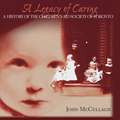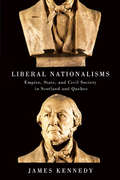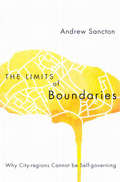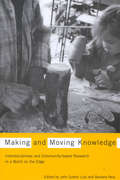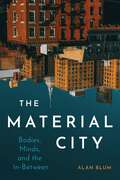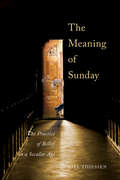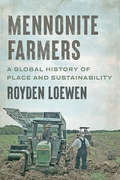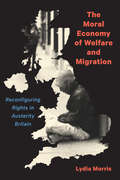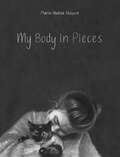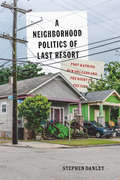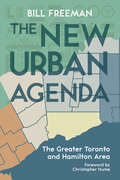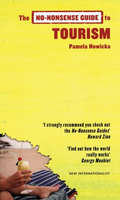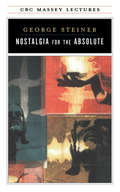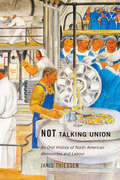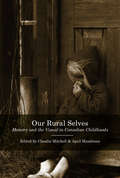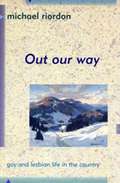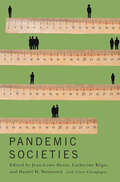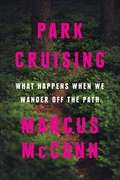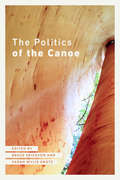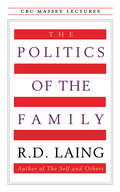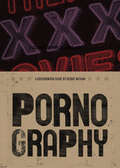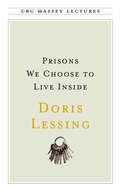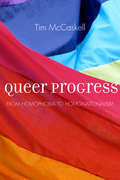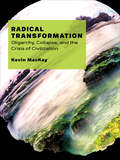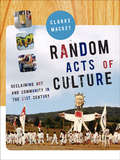- Table View
- List View
A Legacy of Caring: A History of the Children's Aid Society of Toronto
by Children'S Aid Foundation Gail Aitken Donald F. Bellamy John MccullaghBegun in 1891, the Children’s Aid Society of Toronto is the largest child welfare agency in North America. It has played a leading roll as an advocate of children’s welfare; it has been instrumental in influencing child welfare practice not only in Ontario but all of Canada and elsewhere. With an emphasis on the post-World War II period, A Legacy of Caring examines the political, social, and economic factors that led to changes within the society itself as well as developments in legislation and social policy. The society has been a training ground for many highly committed professionals who have gone on to be leaders in other governmental and nongovernmental agencies in Canada and abroad.
Liberal Nationalisms: Empire, State, and Civil Society in Scotland and Quebec
by James KennedyThe early twentieth century witnessed the emergence of Scottish and Quebec nationalisms that were closely intertwined with liberal philosophies. The Young Scots' Society and the Ligue nationaliste canadienne carried these liberal nationalist ideas. This book offers a comparative and historical examination of their ideas and politics, exploring the Young Scots as a movement, as well as the ideas of key Nationalistes. James Kennedy argues that the growth of the Young Scots' Society and the Ligue nationaliste canadienne was largely in response to changes within empire, state, and civil society. He suggests that the actions of the British Empire and the Canadian state not only prompted nationalist responses in Scotland and Quebec respectively, but also shaped their liberal character. His comparative analysis provides insights that would not arise from a single case study of either movement, while detailing the important roles that geopolitics, consociation and federation, and organized religion played in the creation of nationalist philosophies. The first-ever comparative history of nationalism in Scotland and Quebec, Liberal Nationalisms is an insightful study of nascent political nationalisms and a major contribution to the scholarship of nationalist movements in the early twentieth century.
The Limits of Boundaries: Why City-regions Cannot be Self-governing
by Andrew SanctonAndrew Sancton combines his own broad knowledge of global changes with an outline and comparison of the viewpoints of prominent social scientists to argue that city regions in western liberal democracies will not and cannot be self-governing. Self-government requires a territory delineated by official boundaries, but the multiple boundaries of city-regions, unlike the clear and undisputed boundaries of provinces and states, continue to move outward due to the constant growth and expansion of urban populations and services.
Making and Moving Knowledge: Interdisciplinary and Community-based Research in a World on the Edge
by John Sutton Lutz Barbara NeisIt has been clear for some time that research does not automatically translate into knowledge, nor does knowledge necessarily translate into wisdom. Whether the immediate challenge is global warming, epidemic disease, poverty, environmental degradation, or social fragmentation, research efforts are wasted if we cannot devise efficient and understandable processes to create and transfer knowledge to policy makers, interested groups, and communities. How to maximize the impact of scholarly research and combine it with practical knowledge already available in lay communities are key issues in a world threatened with social-ecological disasters. Making and Moving Knowledge focuses directly on how knowledge is created and transferred or is blocked and atrophies. It places knowledge generated by universities and governments beside practical knowledge from coastal aboriginal and non-aboriginal communities and looks at how different kinds of knowledge flow in different directions. Concentrating on intellectually fertile spaces at the edges of disciplines and the rich socio-ecological interfaces where land meets sea, authors demonstrate their commitment to knowledge transfer in their work, showing how knowledge transfer can be considered theoretically, methodologically, and practically."
The Material City: Bodies, Minds, and the In-Between (Culture of Cities Series)
by Alan BlumRedirecting examinations of the culture of the city away from its customs, art, and amenities to focus on the mental life of modern society, Alan Blum explores the methods cities and their subjects use to find meaning in the context of urban life, in particular the city’s relationships to social change and what has traditionally been identified as justice.The Material City pictures the city as a landscape of diverse clashes over beliefs, a site that exhibits interpretive collisions over globalization, gentrification, innovation, preservation, market value, popular culture, crowds, consumption, urban governance, and different strategies for healing the democratic city’s ever-present conflicts over these concerns. Each chapter uses a problem of urban life to observe and analyze assumptions and values that are typically taken for granted and unspoken, using elements of the philosophy of Plato as well as the work of modern thinkers such as Georg Simmel, Gertrude Stein, Ludwig Wittgenstein, Virginia Woolf, Hannah Arendt, and Jacques Lacan.The Material City translates contested views of everyday life and its management into a deeper reflection on urbanity as a system of desire. The historical and the contemporary metropolis alike are shown to be sites where the enigma of mortality – and its relation to pleasure, comedy, and fate – plays out.
The Meaning of Sunday: The Practice of Belief in a Secular Age
by Joel ThiessenFewer Canadians identify with a religion, believe in a god, or attend weekly religious services than in past decades. What explains higher and lower levels of religiosity? Is secularization a myth or reality? What impact does religiosity or secularity have on a society’s social and civil fabric? In The Meaning of Sunday, Joel Thiessen addresses these questions by weaving together narratives from interviews with members of both religious and secular communities. Exploring the meanings and motivations behind people’s religious beliefs and behaviours, the book features discussions with three groups of people: those who attend religious services weekly, those who attend services mainly for religious holidays and rites of passage, and those who do not identify with any religious group and never attend religious services. Interview responses show that religiosity levels correlate to one’s personal experiences with the supernatural, religious organizations, and social ties with those who either encourage or discourage religious identification, belief, or practice. Concluding that the demand for religion is waning regardless of what religious groups include in their programs, Thiessen suggests that, apart from some initial social and civic concern, Canadian society may be just fine without it. Testing two dominant theories in the sociology of religion - secularization and rational choice theory - The Meaning of Sunday provides in-depth qualitative research on people's "lived religion" and contributes to a major ongoing debate concerning the nature and importance of religion in contemporary society.
Mennonite Farmers: A Global History of Place and Sustainability
by Royden LoewenMennonite farmers can be found in dozens of countries spanning five continents. In this comparative world-scale environmental history, Royden Loewen draws on a multi-year study of seven geographically distinctive Anabaptist communities around the world, focusing on Mennonite farmers in Bolivia, Canada, Indonesia, the Netherlands, Russia, the United States, and Zimbabwe. These farmers, who include Amish, Brethren in Christ, and Siberian Baptists, till the land in starkly distinctive climates. They absorb very disparate societal lessons while being shaped by particular faith outlooks, historical memory, and the natural environment. The book reveals the ways in which modern-day Mennonite farmers have adjusted to diverse temperatures, precipitation, soil types, and relative degrees of climate change. These farmers have faced broad global forces of modernization during the twentieth and early twenty-first centuries, from commodity markets and intrusive governments to technologies marked increasingly by the mechanical, chemical, and genetic. As Mennonites, Loewen writes, these farmers were raised with knowledge of the historic Anabaptist teachings on community, simplicity, and peace that stood alongside ideas on place and sustainability. Nonetheless, conditioned by gender, class, ethnicity, race, and local values, they put their agricultural ideas into practice in remarkably diverse ways. Mennonite Farmers is a pioneering work that brings faith into conversation with the land in distinctive ways.
The Moral Economy of Welfare and Migration: Reconfiguring Rights in Austerity Britain
by Lydia MorrisBritain's coalition government of 2010–2015 ushered in an enduring age of austerity and a "moral mission" of welfare reform as part of a drive for deficit reduction. Stricter controls were applied to both domestic welfare and international migration and asylum, which were presented as two sides of the same coin. Policy in both areas has engaged a moral message of earned entitlement and invites a sociological approach that examines such policies in combination, alongside their underpinning moral economy.Exploring the idea of a moral economy – from its original focus on popular rebellion at the rising price of corn to more contemporary analysis of measures that seek to impose moral values from above – Lydia Morris examines Britain's reconfigured pattern of rights in the fields of domestic welfare and migration. Those in power have claimed that heightened conditions and sanctions for the benefit-dependent domestic population, both in and out of work, will promote labour market change and reduce demand for low-skilled migrant workers, often EU citizens, whose own access to benefits was curtailed prior to Brexit. Morris traces related political discourse through to the design and implementation of concrete policy measures and maps the diminished access to rights that has emerged, paying particular attention to the boundaries drawn in defining target groups, and the resistance this has provoked.The Moral Economy of Welfare and Migration considers the topology of the whole system to highlight cross-cutting devices of control that have far-reaching implications for how we are governed as a total population.
My Body in Pieces
by Marie-Noëlle HébertA deeply emotional graphic memoir of a young woman’s struggles with self-esteem and body image issues.All Marie-Noëlle wants is to be thin and beautiful. She wishes that her thighs were slimmer, that her stomach lay flatter. Maybe then her parents wouldn’t make fun of her eating habits at family dinners, the girls at school wouldn’t call her ugly, and the boy she likes would ask her out. This all-too-relatable memoir follows Marie-Noëlle from childhood to her twenties, as she navigates what it means to be born into a body that doesn’t fall within society’s beauty standards.When, as a young teen, Marie-Noëlle begins a fitness regime in an effort to change her body, her obsession with her weight and size only grows and she begins having suicidal thoughts. Fortunately for Marie-Noëlle, a friend points her in the direction of therapy, and slowly, she begins to realize that she doesn’t need the approval of others to feel whole.Marie-Noëlle Hébert’s debut graphic memoir is visually stunning and drawn entirely in graphite pencil, depicting a deeply personal and emotional journey that encourages us to all be ourselves without apology. Key Text Featuresgraphic novelcomic style
A Neighborhood Politics of Last Resort: Post-Katrina New Orleans and the Right to the City (McGill-Queen's Studies in Urban Governance #10)
by Stephen DanleyThe steep rise in neighborhood associations in post-Katrina New Orleans is commonly presented in starkly positive or negative terms – either romanticized narratives of community influence or dismissals of false consciousness and powerlessness to elite interests. In A Neighborhood Politics of Last Resort Stephen Danley offers a messier and ultimately more complete picture of these groups as simultaneously crucial but tenuous social actors. Through a comparative case study based on extensive fieldwork in post-Katrina New Orleans, Danley follows activists in their efforts to rebuild their communities, while also examining the dark underbelly of NIMBYism ("not in my backyard"), characterized by racism and classism. He elucidates how neighborhood activists were tremendously inspired in their defense of their communities, at times outwitting developers or other perceived threats to neighborhood life, but they could be equally creative in discriminating against potential neighbors and fighting to keep others out of their communities. Considering the plight of grassroots activism in the context of national and global urban challenges, A Neighborhood Politics of Last Resort immerses the reader in the daily minutiae of post-Katrina life to reveal how multiple groups responded to the same crisis with inconsistent and often ad-hoc approaches, visions, and results.
The New Urban Agenda: The Greater Toronto and Hamilton Area
by Bill Freeman Christopher Hume2015 Speaker's Book Award — Shortlisted City planning in the GTHA has been mired in political grandstanding for the past decade, The New Urban Agenda offers a plain language solution to the issues plaguing the GTHA. Politics in the Greater Toronto, Hamilton Area (GTHA) have become increasingly divisive over the past decade, and solutions to the city’s problems have become hot-topic issues debated in council and the press, but never finding resolution.The New Urban Agenda is equal parts history, social science, and call to action to solve the major problems facing the GTHA. Issues such as urban and suburban development, transit, the region’s environmental impact, affordable housing, and the seemingly inherent gridlock of municipal politics are all discussed. Award-winning author Bill Freeman offers a level-headed approach to the problems and lays out an agenda that will lead to an improvement in the quality of life in our neighbourhoods and downtowns and make our cities more economically viable. He encourages individuals and communities to speak up for themselves and get involved in politics at a grassroots level. With no shortage of examples, he shows how this strategy can create the change that is needed to move cities forward in a way that benefits everyone, not just the business and political elite.
No-Nonsense Guide to Tourism (No-Nonsense Guides #25)
by Pamela NowickaMany people like to take a break by exploring somewhere new, whether it’s with just a backpack or with a fleet of luggage. But there is more to a holiday that visiting “attractions,” sampling local foods, and napping in a hammock. Being a tourist is easy—tourism is complex. In this No-Nonsense Guide, Pamela Nowicka explores the third largest industry in the world (after oil and narcotics) and its profound economic, social, and environmental impacts. Taking the reader on a trip from the early days of travel to the first package tours and on to today’s mass tourism, she argues that without a greater commitment to equitable and sustainable practices, tourists of all stripes will continue to be part of the problem, not the solution.
Nostalgia for the Absolute (The CBC Massey Lectures)
by George SteinerWriter and scholar George Steiner's Massey Lectures are just as cogent today as when he delivered them in 1974 -- perhaps even more so. He argues that Western culture's moral and emotional emptiness stems from the decay of formal religion. He examines the alternate mythologies (Marxism, etc.) and fads of irrationality (astrology, the occult). Steiner argues that this decay and the failure of the mythologies have created a nostalgia for the absolute that is growing and leading us to a massive clash between truth and human survival. Ultimately he suggests that we can only reduce the impact of this collision course if we continue, as disinterestedly as possible, to ask questions and seek answers in the face of our increasingly complex world.
Not Talking Union: An Oral History of North American Mennonites and Labour
by Janis ThiessenHow does one write a labour history of a people who have not been involved in the labour movement in significant numbers and, historically, have opposed union membership? While North American Mennonites have traditionally been associated with rural life, in light of the adjustments demanded by post-1945 urbanization and industrialization, they in fact became very involved in the workforce at a time of important labour foment. Drawing on over a hundred interviews, Janis Thiessen explores Mennonite responses to labour movements such as Cesar Chavez and the United Farm Workers, as well as Mennonite involvement in conscientious objection to unions. This innovative study of the Mennonites - a people at once united by an ethnic and religious identity, yet also shaped by differences in geography, immigration histories, denomination, and class position - provides insights into how and why they have resisted involvement in organized labour. Not Talking Union adds a unique perspective to the history of labour, exploring how people negotiate tensions between their commitments to faith and conscience and the demands of their employment. Not Talking Union breaks new methodological ground in its close analysis of the oral narratives of North American Mennonites. Reflecting on both oral and archival sources, Thiessen shows why Mennonite labour history matters, and reveals the role of power and inequality in that history.
Our Rural Selves: Memory and the Visual in Canadian Childhoods
by Claudia Mitchell April MandronaLife in the countryside, often perceived as either idyllic or depleted, has long been misrepresented. Challenging the stereotypes and myths that surround the idea of rurality, Our Rural Selves interrogates and represents individual and collective memories of childhood in rural landscapes and small towns. Drawing on visual artifacts whose origins range from the early twentieth century to today, such as photographs, films, objects, picture books, and digital games, contributors offer readings of childhood that are geographically, ethnically, and culturally diverse. They examine the memories of Indigenous children, the experiences of back-to-the-land youth, and boom-or-bust childhoods within the petroleum, farming, and fishing industries. Illustrating often neglected and overlooked aspects of adolescence, this collection suggests new ways of studying social connectedness and collective futures. Innovative and revealing in its use of visual studies, autoethnography, and memory-work, Our Rural Selves explores representation, imagination, and what it means to grow up rural in Canada.
Out Our Way: Gay and Lesbian Life in the Country
by Michael RiordonMichael Riordon celebrates the survival of ordinary, extraordinary people whose experiences are rarely reflected in the media. These stories of courage and humour were gathered in the course of two years and 27,000 kilometres of travel, and some three hundred in-person conversations.
Pandemic Societies
by Jean-Louis Denis, Catherine Régis, and Daniel WeinstockAt the outset of the COVID-19 pandemic, many thought the changes taking place would be fleeting. It is now widely recognized that COVID-19 will not be the last pandemic in our highly interconnected world, and “pandemic societies” will be with us for some time.Pandemic Societies brings together experts in a wide range of academic disciplines to reflect on how their fields might be transformed in this new context. While the pandemic forces global institutions, such as the World Health Organization, to reimagine the ways in which they function, it also reaches into our everyday lives to change how we organize culture, performing arts, sports, tourism, and cities. Exploring how COVID-19 has altered people’s daily experiences – the ways they meet to play, to perform, and to entertain themselves – this book also pulls the lens back to take in the broader institutional and political contexts in which these quotidian activities are carried out.Examining the profound ways in which the COVID-19 pandemic has transformed every aspect of our lives, Pandemic Societies attempts to understand how we might act to steer this pandemic society, and how to reinvent institutions and practices that we think of as intrinsically face to face.
Park Cruising: What Happens When We Wander Off the Path
by Marcus McCannAn intimate look at one of culture’s most enduring taboos: public sex. Park Cruising takes a long look at the men who cruise for sex in urban parks. Human rights lawyer Marcus McCann uses park cruising as a point of departure for discussions of consent, empathy, public health, municipal planning, and our relationship to strangers. Prompted by his work opposing a police sting in a suburban park, McCann’s ruminations go beyond targeted enforcement and police indifference to violence to examine cruising as a type of world-building. The result is a series of insightful and poetic walks through history, law, literature, and popular representations of cruising in search of the social value of sex. What McCann ultimately reveals is a world of connection, care, and unexpected lessons about the value of pleasure.
The Politics of the Canoe
by Bruce Erickson Sarah Wylie KrotzPopularly thought of as a recreational vehicle and one of the key ingredients of an ideal wilderness getaway, the canoe is also a political vessel. A potent symbol and practice of Indigenous cultures and traditions, the canoe has also been adopted to assert conservation ideals, feminist empowerment, citizenship practices, and multicultural goals. Documenting many of these various uses, this book asserts that the canoe is not merely a matter of leisure and pleasure; it is folded into many facets of our political life. Taking a critical stance on the canoe, The Politics of the Canoe expands and enlarges the stories that we tell about the canoe’s relationship to, for example, colonialism, nationalism, environmentalism, and resource politics. To think about the canoe as a political vessel is to recognize how intertwined canoes are in the public life, governance, authority, social conditions, and ideologies of particular cultures, nations, and states. Almost everywhere we turn, and any way we look at it, the canoe both affects and is affected by complex political and cultural histories. Across Canada and the U.S., canoeing cultures have been born of activism and resistance as much as of adherence to the mythologies of wilderness and nation building. The essays in this volume show that canoes can enhance how we engage with and interpret not only our physical environments, but also our histories and present-day societies.
The Politics of the Family (The CBC Massey Lectures)
by R.D. LaingIn his 1968 CBC Massey Lectures R. D. Laing discusses how and why we value society's notions of family over our own. Using concepts of schizophrenia, R.D. Laing demonstrates that we tend to invalidate the subjective and experiential and accept the proper societal view of what should occur within the family. A psychoanalyst and psychiatrist, Laing worked at the Tavistock Institute of Human Relations. His books include The Self and Others and The Politics of Experience.
Pornography: A Groundwork Guide (Groundwork Guides)
by Debbie NathanInformative and thought-provoking, this book from one of the most interesting and original thinkers currently looking at human sexuality provides a fresh view of pornography. Clearly and concisely written for young adults.Pornography addresses a very important issue in a rational, analytical manner. Society tells us that we aren't supposed to look at pornography — much less talk publicly about it — but the Internet has created unprecedented access to porn over the last few years.This book deals with pornography as a social issue, translating the best academic research into reader-friendly language."[The Groundwork Guides] are excellent books, mandatory for school libraries and the increasing body of young people prepared to take ownership of the situations and problems previous generations have left them." — Globe and Mail
Prisons We Choose to Live Inside (The CBC Massey Lectures)
by Doris LessingIn her 1985 CBC Massey Lectures Doris Lessing addresses the question of personal freedom and individual responsibility in a world increasingly prone to political rhetoric, mass emotions, and inherited structures of unquestioned belief. The Nobel Prize-winning author of more than thirty books, Doris Lessing is one of our most challenging and important writers.
Queer Progress: From Homophobia to Homonationalism
by Tim McCaskellHow did a social movement evolve from a small group of young radicals to the incorporation of LGBTQ communities into full citizenship on the model of Canadian multiculturalism? Tim McCaskell contextualizes his work in gay, queer, and AIDS activism in Toronto from 1974 to 2014 within the shift from the Keynesian welfare state of the 1970s to the neoliberal economy of the new millennium. A shift that saw sexuality —once tightly regulated by conservative institutions—become an economic driver of late capitalism, and sexual minorities celebrated as a niche market. But even as it promoted legal equality, this shift increased disparity and social inequality. Today, the glue of sexual identity strains to hold together a community ever more fractured along lines of class, race, ethnicity, and gender; the celebration of LGBTQ inclusion pinkwashes injustice at home and abroad. Queer Progress tries to make sense of this transformation by narrating the complexities and contradictions of forty years of queer politics in Canada’s largest city.
Radical Transformation: Oligarchy, Collapse, and the Crisis of Civilization
by Kevin MacKayRadical Transformation is a story about industrial civilization’s impending collapse, and about the possibilities of averting this fate. Human communities first emerged as egalitarian, democratic groups that existed in symbiotic relationship with their environments. Increasing complexity led to the emergence of oligarchy, in which societies became captive to the logic of domination, exploitation, and ecological destruction. The challenge facing us today is to build a movement that will radically transform civilization and once more align our evolutionary trajectory in the direction of democracy, equality, and ecological sustainability.
Random Acts of Culture: Reclaiming Art and Community in the 21st Century
by Clarke MackeyIn our society, cultural activity—or the arts—usually refers to the high culture of the elites and popular mass culture. Clarke Mackey argues for a third category that is as old as human society itself but seldom discussed: vernacular culture. Vernacular culture comprises all those creative, non-instrumental activities that people engage in daily, activities that provide meaning in life: conversations between friends, social gatherings and rituals, play and participatory sports, informal storytelling, musical jam sessions, cooking and gardening, homemade architecture, and street festivals. In this lively and eclectic discussion, Mackey maintains that practising and celebrating such activities at the expense of passive, consumer culture have far-reaching benefits. Mackey further examines how literacy, imperialism, industrialization and electronic technologies have produced a culture of spectatorship, apathy and powerlessness. This is a timely, considered, and provocative response to the popularity of amateur, participatory, and do-it-yourself culture available on the internet.
